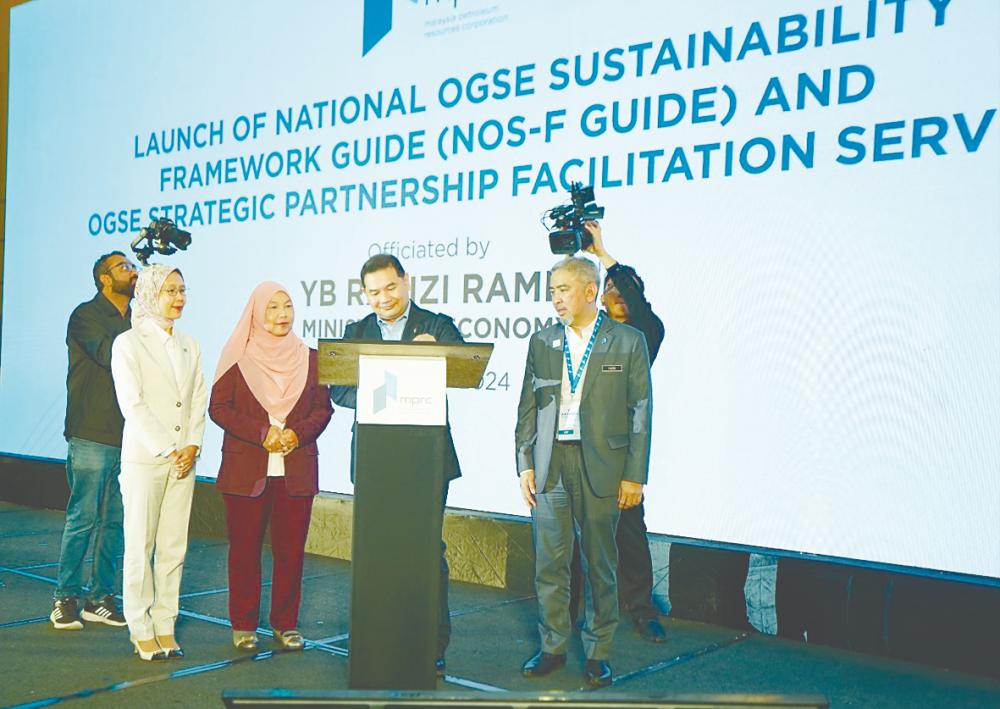KUALA LUMPUR: Nuclear energy is set to be included as an official power source in the 13th Malaysia Plan (13MP) following approval from the National Energy Council and the Cabinet, Economy Minister Rafizi Ramli disclosed.
He said it will be challenging for Malaysia to achieve its net zero ambition by 2050 without nuclear power.
“The decision has been made at the National Energy Council level and approved by the Cabinet, so in the 13th Malaysia Plan, nuclear energy as one of the country’s energy sources will be officially included is possible,” he told reporters at the National OGSE Blueprint Forum 2024 today.
Rafizi said the discussions about introducing nuclear energy in Malaysia were kept “hush hush” until recently.
“I had a forum with the prime minister last week, I looked at him, he nodded, and he said, I think it’s time to just be honest and transparent with the public and the industry,” he revealed.
Rafizi said the Ministry of Energy Transition and Water Transformation and the Ministry of Science, Technology, and Innovation are collaborating to develop the necessary legal and regulatory framework for Malaysia’s nuclear energy.
“The stage of putting the regulations, governance, and policy in place for nuclear has advanced in the government,” he said.
He stated that Malaysia’s target for restored renewable capacity, coal retirement, and electric vehicle adoption to achieve net zero by 2050 are already extremely stretched.
“The approach with the National Energy Transition Roadmap is to set these targets as a minimum to attract capital, talent, and societal support, buying us time to explore additional strategies (such as nuclear energy),” said Rafizi.
Outlining the benefits of nuclear energy, he said it is a clean alternative to “help us reach our net zero goals by 2050”.
He added that it is also more sustainable, as it does not depend on volatile fuel sources such as coal or gas.
“When coal or gas prices rise, so does the cost of electricity. Nuclear energy, however, is less vulnerable to such fluctuations,” Rafizi explained.
He highlighted advancements in nuclear technology, particularly small modular reactors (SMR).
“Unlike the large, complex reactors of the past, SMR are safer, smaller, and cheaper to operate. This new technology allows for efficient energy production without the need for extensive infrastructure like gas pipelines,” he said, adding that with SMR becoming more accessible worldwide, the government is now evaluating the feasibility of nuclear energy in Malaysia.









